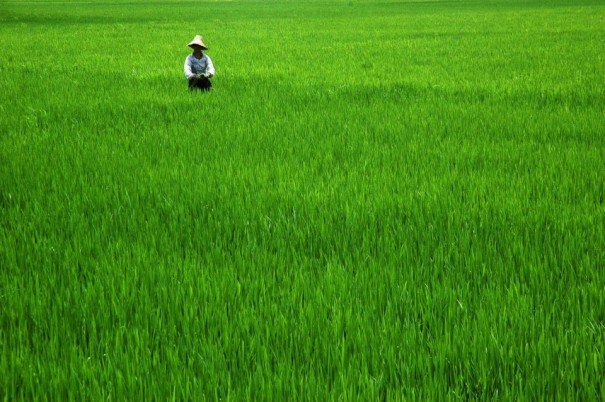
The Perfect Pancake Is Worth a Six‑Hour Bike Ride

The Perfect Pancake Is Worth a Six‑Hour Bike Ride
Baba in Xizhou
The area around Erhai Lake in Yunnan, China, is famous for its serene beauty and ancient Bai traditions. They are also famous for a vibrant cycling culture. The mild climate and smooth roads attract Chinese cyclists for the annual Tour de Erhai, an 80-mile race around the lake that starts in the regional center—Dali—and continues along gentle hills, rice paddies, and tiny Bai villages. Yunnan is one of the less developed areas in China, so you can still see villagers walking in their traditional attire and plowing fields with the help of animals. Time seems to have stopped around Erhai.
Chinese tourists rent colorful bikes for day trips and even try tandem or triple-bikes, which are a source of many falls and even more fun. Lycra-clad pros wrap their faces in black scarves for protection against dust and sunshine, and zoom along the lake like wheeled ninjas. Dali itself has a perfect size and location for every-day riding, and sooner or later every visitor succumbs to the local cycling craze.
After a few months of life in Dali, I bought a brand-new bicycle myself and started taking it for a spin to the nearby sights. A popular destination among Dali cyclists was the town of Xizhou, 12 miles away from Dali. It took me about six hours to get there and back, and it became my favorite weekend destination. Besides, Xizhou was famous for its pancakes—baba—which made a perfect breakfast.
Baba is a thick pancake the size of a palm. It can be made sweet or salty, the latter being stuffed with minced pork or spring onions. Baba is sold in many towns around Erhai, but a Xizhou baba is particularly famous for its balance of fat, softness, and saltiness/sweetness.
I would keep my stomach empty every weekend and take an early ride to Xizhou. The town would welcome me into a maze of narrow streets and old houses of brick and wood. The center of activity would be the small square, where locals would come to buy and sell goods exchange gossip, and have a snack. The baba stand would be the busiest one.
The path to my breakfast was not always clear. One day would be too sunny, another would be too rainy; one day, there would be construction going along the road, while another day would be the soy bean harvest. The harvest was the worst. The villagers would cut the plants with the pods still intact and spread them along the road so that passing cars would crash the pods with their wheels and make it easier for the villagers to get to the beans.
In these harvest periods, the roads would be a real hazard. Eager villagers would pile the plants so high that it would be impossible to ride through them, and I would have to dismount and walk. The already crashed pods and beans spread all over the road would make me skid while making a turn. But I would remember the breakfast waiting for me in Xizhou, and press on.